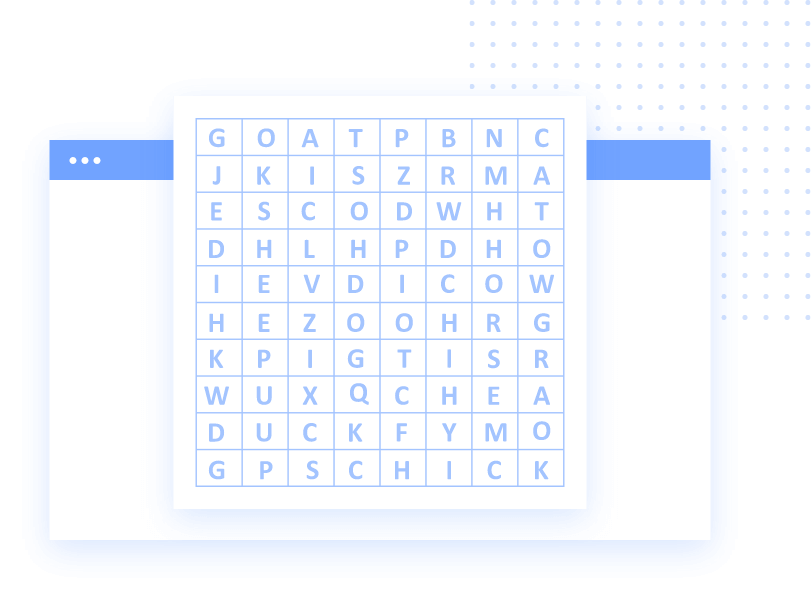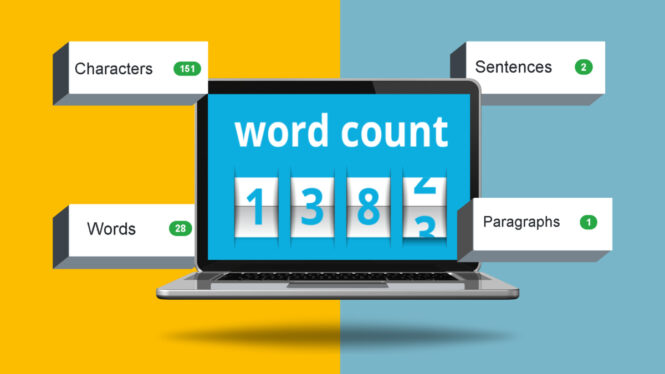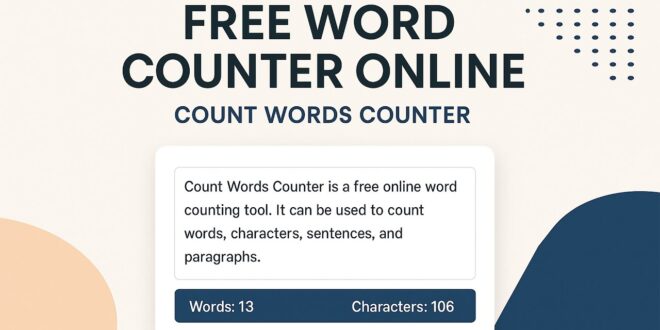Keeping track of word count is one of those small tasks that can either support your writing or cause unnecessary stress. Whether you’re a student aiming to meet assignment requirements, a content writer managing SEO guidelines, or a professional preparing documents with strict limits, accuracy matters.
Free online word counters make the process simple and fast, but the challenge is finding those that truly deliver reliable results. Too many are cluttered with ads, track user data, or produce inconsistent counts.
This article curates the best free options, explains why word counting matters in different contexts, and offers practical ways to make these tools part of a healthy writing routine.
Tools That Do More Than Count Words
The best word counters are more than calculators. They integrate extra features that save time during editing and review. Some offer sentence length averages, highlighting when prose becomes hard to read. Others track keyword density, a key metric for SEO.
A few even flag possible plagiarism or machine-generated patterns. That’s where tools like a chatgpt detector come in handy, giving teachers and professionals an added layer of trust in the originality of content.
These added functions transform a simple tool into a multi-purpose assistant. For instance, a freelance writer might check not only word totals but also keyword distribution before sending a draft to a client.
A student could paste an essay and receive feedback on readability alongside the count. By blending these layers, modern counters help ensure writing isn’t just long enough but also clear, balanced, and authentic.
Features That Separate Good Tools From Frustrating Ones

Not every counter earns trust. Many look polished but fall short on usability. Before choosing one, consider these essential qualities:
- Accuracy you can cross-check ─ The numbers should match Word, Docs, or any trusted editor.
- Speed without delays ─ Immediate results reduce friction in the writing process.
- Multiple input methods ─ Pasting text, typing directly, or uploading files should all be supported.
- Helpful extras ─ Character count, paragraph count, and keyword density add value.
- Data privacy ─ Clear statements that text is not stored, shared, or analyzed beyond counting.
Ignoring these details often leads to wasted effort. If you’ve ever pasted into a clunky counter that misread formatting or got stuck loading, you know the irritation. A good tool should feel invisible—always there when needed, never drawing attention to its flaws.
Comparing Reliable Free Word Counters
To make the choice easier, here’s a practical comparison of popular free counters. Each excels in slightly different areas, so match the tool to your needs.
| Tool Name | Best For | Notable Feature | Limitation |
| WordCounter.net | General writers | Keyword density insights | Ad-heavy interface |
| CountOfWords | Students and essay checks | Clean, distraction-free | Limited extra metrics |
| EasyWordCount | Quick SEO checks | Character + keyword data | Less accurate on large texts |
| Charcounter | Social media and SMS writers | Tracks characters easily | No advanced reporting |
This table highlights a core truth: there is no single “perfect” counter. Each tool works best when paired with the right use case. Social media managers value character tracking, while researchers might prioritize accuracy across long-form texts.
It’s easy to overlook privacy when you’re rushing to check word count. But many online tools rely on hidden data collection. If your text includes sensitive details, like unpublished manuscripts, business strategies, or student papers, choose counters that explicitly guarantee no storage or sharing. Some platforms even allow offline use or offer downloadable versions for those who prefer complete control. Treating privacy as part of your workflow ensures that convenience never compromises trust.
Word Counters in Action Across Fields

The usefulness of word counters extends far beyond classrooms. Professionals, creatives, and technical writers use them in ways tailored to their fields:
- Copywriters polish ad copy to fit strict headline limits while keeping messages persuasive.
- Journalists monitor story length so articles fit column space or meet editorial briefs.
- SEO specialists balance keyword frequency with overall word totals, avoiding both underuse and overstuffing.
- Authors and novelists track progress across chapters, keeping pacing consistent without obsessing over every page.
These examples show that word counters adapt to different rhythms. They can be strict guides when limits are fixed or gentle trackers when progress is measured over time. That flexibility explains their lasting relevance in modern writing.
Free vs. Paid ─ Where They Differ
Free tools have advanced to the point where they meet 90% of everyday needs. They’re accurate, quick, and often user-friendly. Paid tools mainly stand out in integrations and reporting. A premium version might export data into spreadsheets, provide multi-language support, or connect with CMS platforms for professional publishing.
Still, for most writers, free counters suffice. In fact, lightweight digital tools reduce cognitive load during drafting, freeing energy for higher-level thinking. This suggests that even the simplest free counter contributes more to productivity than complex systems that slow writers down.
Tips for Using Counters More Intentionally
To get more from word counters, treat them as part of a workflow rather than one-off checks:
- Pair them with readability metrics to confirm that your writing is not only long enough but also approachable.
- Use them to set personal goals such as 500 words per day, gradually building consistency in large projects.
- Check keyword balance in marketing texts to avoid unnatural repetition.
- Keep snapshots of progress to motivate yourself when working through multi-week assignments or books.
Used this way, a counter becomes less about limits and more about rhythm. It guides you to balance structure, pacing, and clarity while keeping the writing process manageable.
Pitfalls to Avoid

While counters are reliable helpers, overdependence can create problems. Writers sometimes obsess over exact word counts, trimming or padding content unnaturally.
Others may trust counters without checking accuracy, only to discover mismatches with grading or publishing platforms. The healthiest approach is balance: use counters to guide, not dictate.
Always complement them with human judgment, editing, and awareness of your audience. That way, numbers remain supportive tools rather than rigid masters.
Final Thoughts
Free online word counters that actually work are more than digital gadgets; they are steady companions for anyone shaping ideas into text. They save time, prevent mistakes, and gently guide writing toward clarity and balance.
The best ones blend accuracy, privacy, and useful extras, serving writers across classrooms, offices, and creative studios. By choosing a reliable counter and using it thoughtfully, you give yourself both structure and freedom, the structure to stay within limits, and the freedom to focus on what words are meant to do: connect, inform, and inspire.
 Imagup General Magazine 2025
Imagup General Magazine 2025
